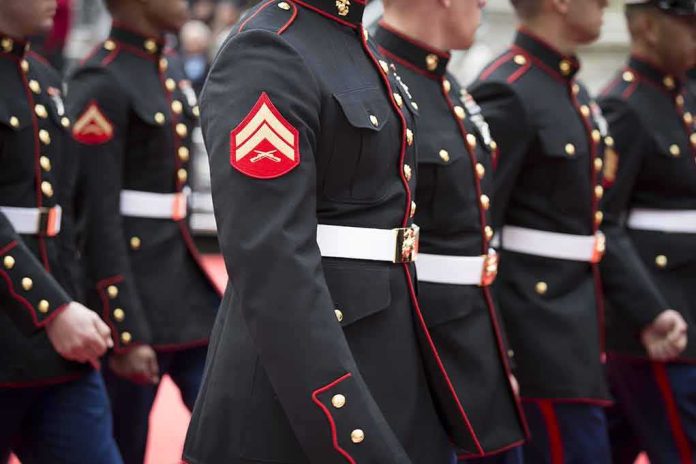
The abrupt firing of an entire Marine Osprey squadron command team in Hawaii signals both a rare shake-up in military leadership and the urgent demand for real accountability after years of lax oversight and dangerous precedents.
Story Snapshot
- The Marine Corps removed the entire leadership of Osprey Squadron VMM-268 at Kaneohe Bay for “loss of trust” in upholding safety and readiness.
- This sweeping action is highly unusual, reflecting heightened scrutiny after fatal Osprey crashes and mechanical failures under previous leadership eras.
- New commanders have been installed as the Corps signals a strict return to operational excellence and accountability.
- Details remain confidential, but the firings expose the real-world impact of failed oversight and the urgent need for a culture of responsibility in military ranks.
Rare Leadership Overhaul Sends Strong Message on Accountability
On October 28, 2025, the Marine Corps took the extraordinary step of firing the entire command team of Medium Tiltrotor Squadron 268 (VMM-268) at Kaneohe Bay, Hawaii. Lt. Col. Shaina Hennessey, Sgt. Maj. Jamie Lampley, and the squadron’s executive officer were relieved by Maj. Gen. Marcus Annibale, citing a “loss of trust and confidence” in their ability to maintain safety and readiness. This kind of broad action, removing all top leaders at once, is nearly unprecedented in Marine aviation and underscores a new, zero-tolerance approach to leadership lapses affecting mission-critical operations.
"A [US] Marine general [Maj. Gen. Marcus Annibale] fired the commander, XO & senior enlisted leader for an Osprey squadron [VMM-268, MCAS Kaneohe Bay, Hawaii] last week “due to a loss of trust” in their ability to uphold safety & readiness standards,"
https://t.co/KwvxX2tSR6— Andy_Weeble_Weaver💙⚫🦋andy-weaver.bsky.social🗿 (@AndrewW66619812) November 5, 2025
This decisive move comes after years of mounting concerns regarding the MV-22 Osprey’s mechanical reliability and leadership responses to crises. Osprey units have faced intense scrutiny following the deadly November 2023 Air Force crash in Japan, which killed eight airmen and led to a three-month grounding of the aircraft fleet. These tragic events, coupled with continued reports of operational challenges, put pressure on military leadership to demonstrate a renewed commitment to safety and accountability—an expectation that resonates deeply with Americans who demand competence and discipline from those entrusted with national defense.
New Commanders Tasked with Restoring Trust and Readiness
In the wake of the firings, Lt. Col. John Campbell and Sgt. Maj. Joshua Henderson have assumed command of VMM-268. Both bring experience from within Marine Aircraft Group 24, with Campbell previously heading the personnel support detachment and Henderson leading logistics for another aviation unit. Their mandate is clear: restore operational stability, reinforce strict safety protocols, and rebuild the confidence of Marines and their families shaken by the abrupt leadership transition. The quick installation of new leadership signals the Corps’ intent to prioritize stability and readiness, while keeping the squadron’s vital mission on track.
While the Marine Corps declined to provide specific reasons for the firings beyond the standard “loss of trust and confidence,” this lack of transparency is not unusual for military personnel actions. Historically, such language covers a range of issues, from performance shortfalls to conduct violations, and allows the institution to act decisively without publicizing sensitive details. However, the fact that the entire command team was removed—rather than just an individual—suggests a systemic failure that could not be ignored, and a clear break from the culture of leniency toward leadership errors seen in recent years.
Broader Implications: Rebuilding Accountability After Years of Decline
The impact of this overhaul extends well beyond the gates of Kaneohe Bay. For Marine aviators and their families, sudden leadership changes can disrupt morale and daily operations. Yet, the long-term effect may be positive if it leads to a culture where safety, responsibility, and mission focus are non-negotiable. This stands in stark contrast to previous periods where dangerous “woke” distractions, bureaucratic bloat, and lack of real accountability undermined both readiness and public trust. With the Trump administration’s renewed focus on restoring constitutional values and strong defense, such swift actions reaffirm that the era of excuses is over, and that the safety of American service members—and the effectiveness of military assets like the Osprey—will not be compromised by leadership failures.
Military analysts and defense experts emphasize that firings for “loss of confidence” are not new, but rarely have they involved entire command teams. This episode sends a strong message to all service branches: leadership will be held to the highest standards, and those who falter will be replaced to protect lives and uphold the mission. For a conservative audience long frustrated by years of bureaucratic drift and failed oversight, this story is a reminder that real accountability is not only possible, but essential for the nation’s security and values.
Sources:
Marines fire Osprey squadron’s command team over ‘loss of trust’
Marines fire entire command for Osprey squadron in Hawaii




